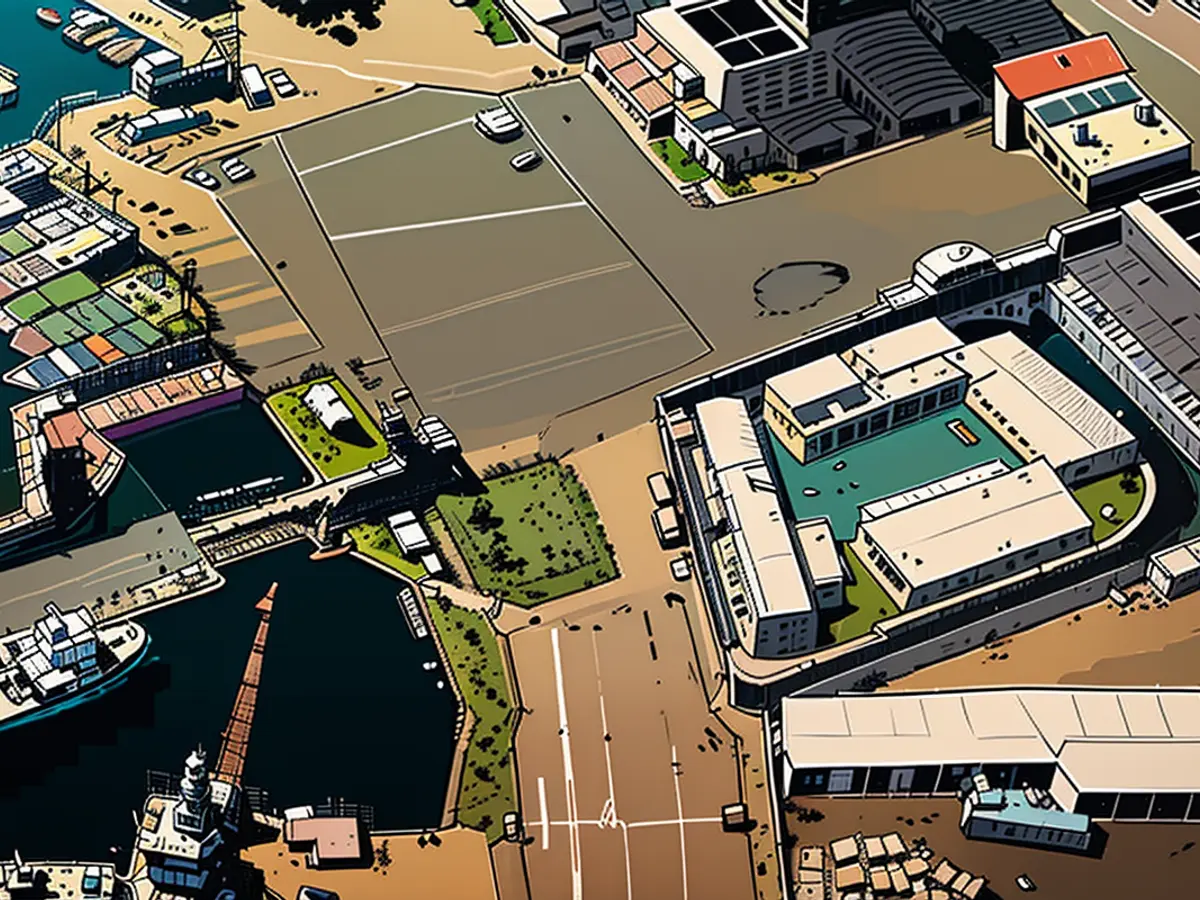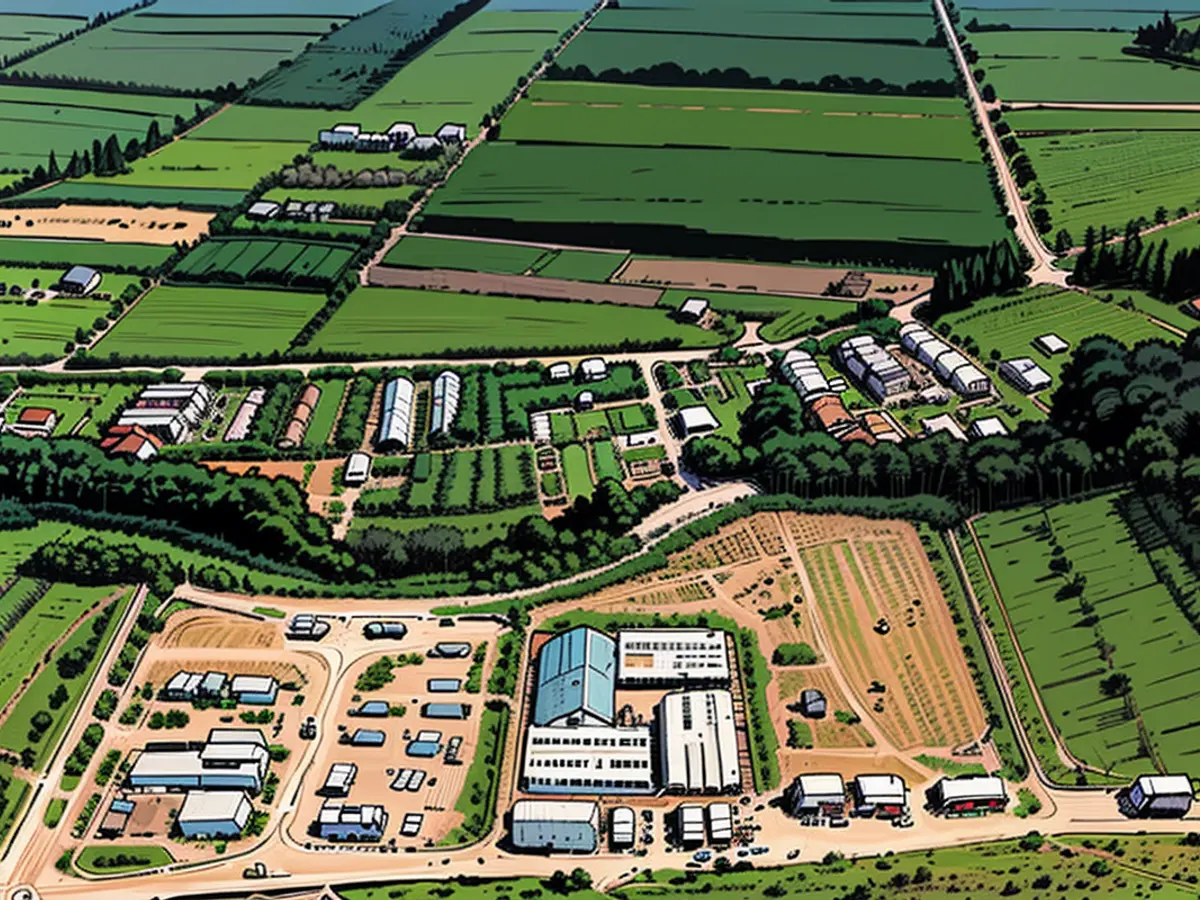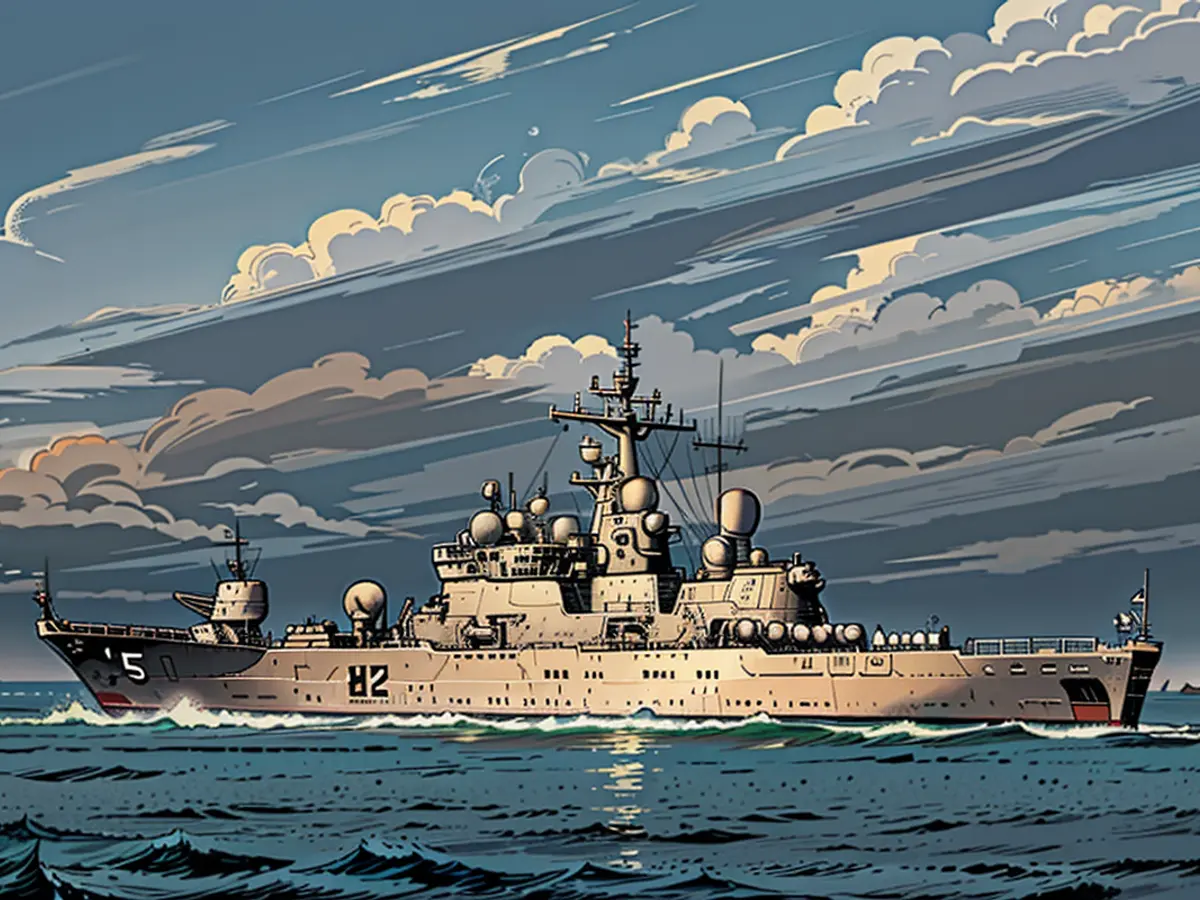Albania-Italy Accommodation Agreement faces alterations amidst shifts in asylum regulations
Italy sends its first batch of rescued or intercepted migrants to Albania. Even within progressive political circles, this measure has numerous supporters. Critics are hopeful that it will eventually be reversed.
Approximately 20 nautical miles from Lampedusa, an Italian navy ship named "Libra" is stationed. On board are migrants who have been saved or apprehended by Italian coast guard vessels in international waters. The individuals are scrutinized, and based on the results, they are either transported to Italy or to Albania.
This two-step system is based on an agreement signed by Italian Prime Minister Giorgia Meloni, leader of the post-fascist Fratelli d'Italia party, and Albanian Prime Minister Edi Rama. Albania provides Italy with two plots of land where migrants can submit their asylum applications in writing and temporarily stay. One plot is located in Shëngjin's port area, where asylum applications are submitted. The second plot is 20 kilometers inland near Gjadër, where a reception center, deportation camp, and a small prison have been constructed. Italian jurisdiction applies.
The Italian authorities initially planned to commence the offshoring in July. More migrants reach the Mediterranean coasts during the summer than in autumn or winter. However, construction delays have postponed the start. Now, the first migrants have boarded the "Libra", with the facilities potentially closing immediately if the intended outcome is not met. Those who see more than just a legal violation in the offshoring of the asylum procedure hope for this outcome. So far, no significant actions have been taken. This could change with the arrival of the first individuals in Albania.
Foreign Interest
Up to 300 migrants can be accommodated in Shëngjin's port, while there will be up to 1120 places in Gjadër's camp. A migrant should receive a determination of their fate within a maximum of four weeks. In the event of a negative verdict, affected individuals will be moved to the deportation section of the camp, where they cannot be detained for more than 18 months. It is unclear what happens to them after this period if they have not been deported.
"I suspect that the current right-wing government's intention behind the offshoring is to erode the right to asylum," says Italian asylum lawyer Gianfranco Schiavone in an interview with n-tv.de. Prime Minister Giorgia Meloni is proud of this solution and is likely delighted that several European governments are observing the Italian-Albanian model with interest. "Even so-called progressive governments do not reject the model," Schiavone adds. Meloni has repeatedly mentioned that she has been approached about the new system. Austria and Germany have also expressed interest. However, Albanian Prime Minister Edi Rama informed Berlin that his country is not available for such German structures.

According to Schiavone, "Operation Albania" poses several problems. "Let's start with the screening on the navy ship, which is almost fateful. That's where it's decided who gets to go to Italy and who must go to Albania." Vulnerable individuals, including women, minors, and those with specific needs, are permitted to travel to Italy. "However, a proper vulnerability assessment requires specialist personnel, doctors, psychologists, and of course someone who speaks the language. There should be a protocol, but that's missing. What Italy is doing on the ship is 'a mess', Schiavone states."
Controversial Points
A second issue arises from the isolation of the reception and return center in Gjader. "EU law prohibits the blanket restriction of asylum seekers' freedom of movement, except in cases where there is a justifiable reason," explains the expert. As long as someone is in limbo and unaware of their application's status, they must be able to move freely. This is the case in Italy, but not in Albania. Italian Interior Minister Matteo Piantedosi has attempted to alleviate concerns by assuring that the camp is not a high-security facility and does not have barbed wire. However, a meter-high fence surrounds the entire area.
The third issue has been exacerbated by a recent ruling from the European Court of Justice (ECJ) and could jeopardize Rome's new system. Meloni's government has designated Albania as a safe country of origin. However, the Italian justice system may disagree and may cite the ECJ's ruling. On October 1st, the court ruled that in a safe country of origin, fundamental human rights must be respected throughout the entire territory at all times. "Many of the countries that Italy considers safe are not safe, according to the European Court of Justice: for example, Egypt, Bangladesh, and Tunisia, from which most of the migrants who arrive in Italy originate," explains Schiavone. Germany also has a different interpretation of the term "safe country of origin" and recently deported asylum seekers to Afghanistan.
Furthermore, individuals who arrive in Italy should be able to seek legal assistance, such as from aid organizations, to contest the rejection of an asylum application. "This would be extremely difficult for those who arrive in Albania. They don't know anyone there and are completely isolated from the rest of the population," says Schiavone. Not only from this population: "The asylum application, the conversation with relevant officials, the duty lawyer, and the judge, all take place via video link."
Monthly maintenance of Albanian infrastructure and remuneration for the deployed Italian workers amount to a million Euros, according to daily publication "La Stampa". Italian taxpayers shell out this figure each month. The price tag for constructing these facilities reached an impressive 800 million Euros. However, there's no talk of establishing permanent roles for judges, legal aids, and translators on-site.

The EU's border protection strategies are being closely observed by several European governments, with Austria and Germany expressing interest in Italy's offshoring model. Critics of this model, such as Italian asylum lawyer Gianfranco Schiavone, argue that the screening process on the Italian navy ship is not adequate, potentially leading to vulnerabilities being overlooked.








